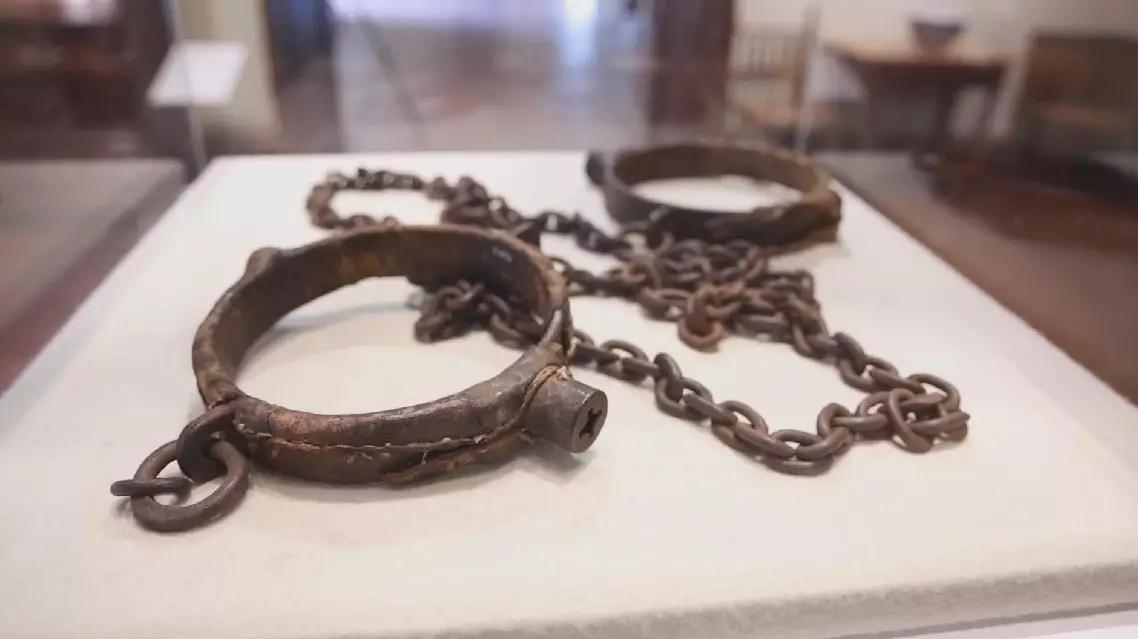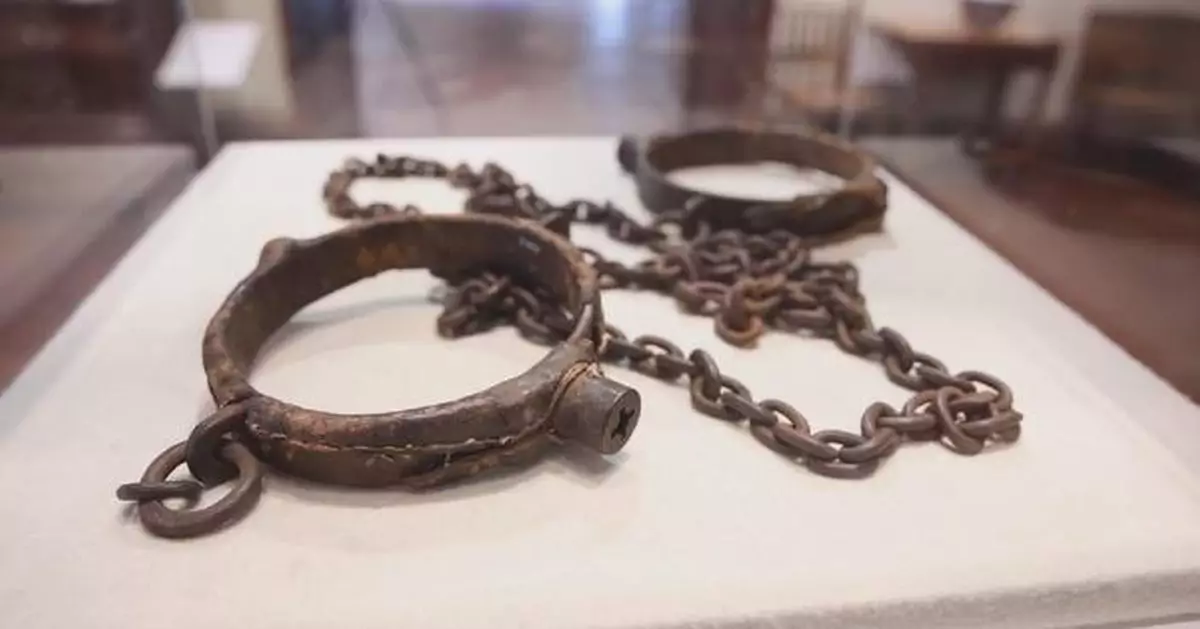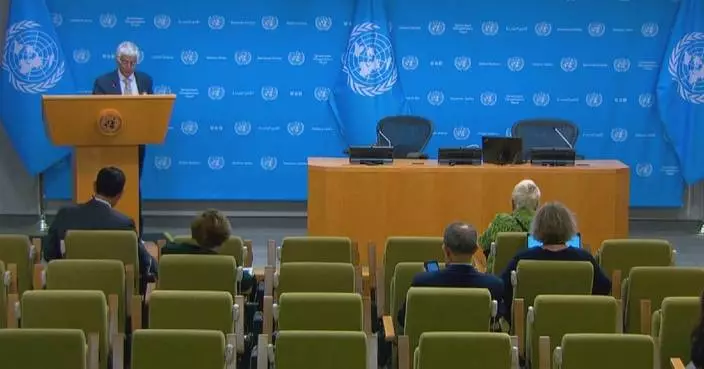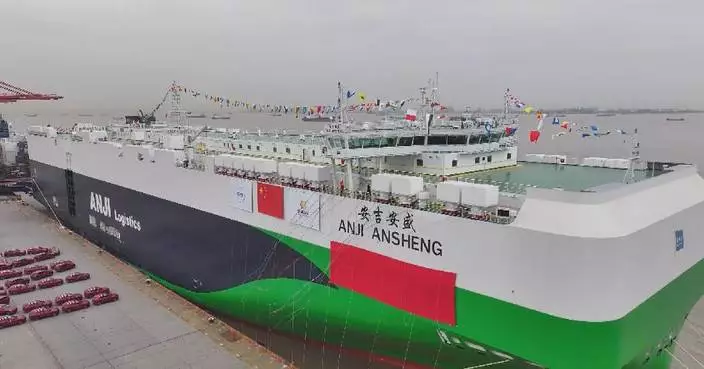The head of the Castle of Good Hope in Cape Town, South Africa, formerly a hub of slave trade and exploitation, called for squarely facing and opposing all forms of modern slavery on Monday, coinciding with the International Day for the Abolition of Slavery.
Built between 1666 and 1679, the Castle of Good Hope is Cape Town's oldest colonial structure, serving not only as a pivotal stronghold for the Dutch East India Company in the Southern Hemisphere but also as one of the centers of slave trade and exploitation.
During that period, Dutch colonists forcibly captured slaves from the African continent, Madagascar, Indonesia, and India to meet their labor needs. The enslaved individuals were mainly engaged in construction, gardening, and domestic work. The castle has many key structures, including the Castle of Good Hope itself, constructed by slaves. Within the castle were facilities for detaining slaves, where hundreds endured inhumane living conditions.
"The slave lords, the castle had its own slave lords, but the slave lords in the center of town was where hundreds of women were kept. They were used to breed other slaves. So, it was not a kind, frankly, it was not a very humane system, it was a system that when one person, a powerful person exploited the labor of other person for a profit," said Calvyn Gilfellen, CEO of the management committee of the Castle of Good Hope.
The slavery system had profound impacts on South Africa's language, culture, and economy. Today, the Castle of Good Hope has been transformed into a history museum, acting as a reminder of the historical lessons of slavery through diverse exhibitions and commemorative events. It also provides an opportunity for reflection to promote global justice and human rights.
"As free and democratic citizens of this country, we must rebel and oppose and fight all forms of modern slavery. As people who tasted the 1834 emancipation of enslaved people, we need to commit ourselves to change that as long as we live in this beautiful country of ours," Gilfellen said.
The International Day for the Abolition of Slavery commemorates the adoption by the General Assembly of the United Nations Convention for the Suppression of the Traffic in Persons and of the Exploitation of the Prostitution of Others.
The focus of this day is on eradicating contemporary forms of slavery, such as trafficking in persons, sexual exploitation, the worst forms of child labor, forced marriage, and the forced recruitment of children for use in armed conflict.

South African insider urges facing, opposing all forms of modern slavery
Pop-up stores, temporary retail spaces that are open in hustle and bustle business districts for a limited period, typically a few days to weeks, have emerged as a popular sales strategy among retailers targeting young consumers and became a significant driver of increased consumption.
Compared with traditional brick-and-mortar stores or online sales channels, the pop-up store model can efficiently reach a wide range of potential buyers in multiple cities and scenarios at a lower cost.
For instance, at Gate M West Bund Dream Center in east China's Shanghai, a pop-up store, featuring a six-meter-tall Disney's Stitch figure plus exclusive limited-edition merchandise, made this cute fictional character a top hit this May along the Huangpu River. Despite the event lasting only over 40 days, it attracted thousands of people every day to take photos.
According to staff there, many of the blind boxes and dolls for sale are limited editions and were already sold out upon release.
"I feel that exclusive sales can really arouse people's desire to consume. If you miss it, it will be gone. And it is very cute and pretty. It can be posted on moments," said a consumer.
Limited-time offers, exclusive products, or special events associated with pop-up shops creates a sense of scarcity, generate buzz and create a fear of missing out among customers.
Pop-up shops also allow brands to create immersive experiences that go beyond traditional retail environments. By carefully curating the ambiance, decorations, and interactive elements, brands can captivate customers, add excitement and novelty to their shopping journey, and leave a lasting impression.
Since April, China's first-ever LEGO-themed garden has been unveiled at the Bund Finance Center in Shanghai for a limited period, converting the shopping mall into a temporary giant garden featuring thousands of stunning floral creations made from colorful LEGO bricks. By encouraging consumer participation through photo-taking, check-ins, and interactive experiences, the pop-up has successfully pushed the sales of new products to record highs.
"By introducing our new products in this way, our overall sales have been greatly boosted. Consumers' comments can also be fed back to our brand, providing more inspiration for our future product planning and event planning," said Liu Mingsheng, brand manager at LEGO China.
Through the model, brands can enhance their visibility, explore new markets, and trial new product launches. Simultaneously, shopping malls and commercial districts can effectively generate foot traffic in a short period.
"During the period of pop-up activities, the foot traffic is basically doubled compared to regular days. These activities also prolong customers' dwell time within the mall, encouraging spending on dining, leisure browsing, and other purchases, thereby enhancing overall consumption conversion rates," said Wu Yiping, director of Marketing Department at Shanghai Bund Financial Center.

Pop-up stores fuel consumption in China























































